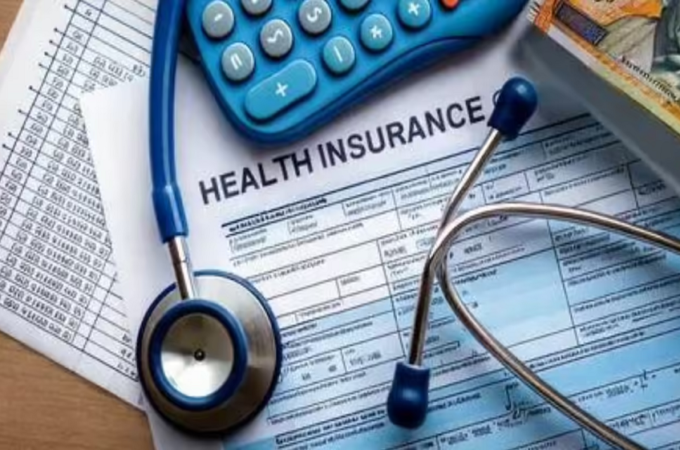
4 Signs Your Energy Levels May Need a Boost
Most people feel periods of low energy throughout their lifetime. Bouts of fatigue can stem from many things, including lack of sleep, hormone fluctuations, and stress. Depending on the underlying cause of your fatigue, the problem may be fleeting or chronic. Once you discover and address what’s going wrong with your body, your energy levels should improve.
Unfortunately, some people think that living with chronic fatigue is normal. They assume it’s a natural result of growing older and dealing with adult responsibilities. Though youthful liveliness does tend to decline with age, it’s not normal to feel fatigued all the time. Here are four signs your energy levels may be lower than usual and need a boost.
1. Your Blood Sugar Levels Are Imbalanced
Every time you consume a meal or snack, your body breaks the food down and turns it into glucose (sugar). Much of your body’s energy comes from glucose. However, if your blood glucose levels become imbalanced, they can impact your energy levels in a big way. If your blood sugar is too low, you’ll end up feeling weak and exhausted. You may also feel dizzy and lightheaded.
Strangely, the symptoms of high blood sugar are similar to those caused by low blood sugar. Extreme fatigue is one of the most common symptoms of high blood glucose. If you aren’t careful, chronically high blood glucose levels can lead to diabetes. If you suspect you have diabetes, talk to your doctor immediately and take any necessary medications prescribed to you. If you don’t have diabetes but are struggling with fatigue due to imbalanced blood sugar levels, there are several things you can do.
Eating a healthy diet is essential for sustained energy and blood sugar management. Make sure you’re consuming plenty of fiber- and nutrient-rich vegetables and fruits. Adequate protein intake will also help you avoid energy-depleting blood sugar spikes and crashes. Some studies show that apple cider vinegar (ACV) can also help stabilize blood sugar levels, so you might want to give it a try.
2. You Hit “Snooze” Every Morning
Are you the type of person who feels tired every morning, no matter how much sleep you received the night before? It may seem funny to others that you hit the snooze button at least five times before getting up. However, this habit could be an indication that something’s wrong. It’s abnormal to never feel adequately rested, especially if you’re getting the recommended number of sleep hours every night.
If you find yourself fantasizing about naps throughout the day or require coffee to survive, you may have chronic fatigue. You may feel constantly unrested because you’re not experiencing deep, restorative sleep. This could be due to several factors, including stress, anxiety, or an underlying medical condition like sleep apnea.
If you prioritize sleep hygiene, maintain a good sleep schedule, and still feel exhausted every day, consider talking to your doctor about trying deep sleep gummies. These supplements can help regulate your sleep cycle and promote deeper sleep, leaving you feeling more energized throughout the day.
3. You Dread Exercise
Exercise can feel a lot like work sometimes. Therefore, it’s not necessarily unusual if hitting the gym isn’t your favorite part of the day. However, if working out seems overwhelming because you don’t have any energy to do it, something may be wrong. To get to the bottom of the problem, there are a few things you can do.
First, try to determine if you dread exercise because you don’t have energy or because it’s boring to you. Some people hate working out because walking on a treadmill or lifting weights with strangers has no appeal to them. If this is the case for you, try engaging in more interesting, unconventional forms of activity. Examples include playing tennis, cycling, hiking, and swimming.
If you avoid exercise because of low energy levels, it’s important to figure out what’s going on. You may need to get a blood test to see if you have low thyroid hormone or any other type of major hormone imbalance. If you do, your doctor may prescribe medication to help bring your hormones back into proper balance and reduce tiredness.
4. Others Notice Your Exhaustion
Another sign your energy levels may need a boost is if your friends, co-workers, and family members notice your exhaustion. They might make comments about how tired you look or ask if you’re feeling ill. Your children may ask why you don’t have the energy to play with them like you used to. Your boss might ask you why your performance is suffering and you’re not as efficient as usual.
If others make note of your fatigue, it’s time to pay attention. It’s easy to overlook your symptoms if you think you’re the only one who notices them. But when tiredness starts to interfere with your personal and professional relationships, you need to take action.
In some cases, excessive stress may be causing you to feel worn down. It can also put you at a high risk of headaches, heart disease, depression, and anxiety. Prioritizing self-care can help reduce the impact of stress on your mind and body. You may also wish to try meditation, relaxation exercises, or therapy.
The human body is a remarkable machine, but it has its limitations. Fortunately, the body is good at giving signs it’s being overworked or undernourished. If you’re experiencing fatigue, it’s your body’s way of telling you it’s time to make a change. Pay attention to these signs of low energy, and do what you can to address the root cause and restore your vigor.





